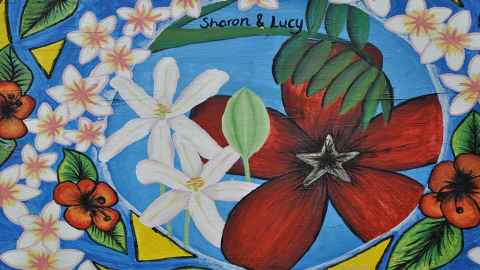A place for Pasifika in early education
16 January 2019
Opinion: More recognition of Pasifika culture in early childhood education would lift barriers to enrolment for Pacific families, writes Vaovasamanaia Meripa Toso.

Pacific families in New Zealand have the highest number of children aged from birth to four. Unfortunately, they also have the lowest enrolment in early childhood education and this will only change if Pasifika culture is properly understood and respected within the infant and toddler learning space.
Sadly, Pasifika-specific initial teacher education has had some setbacks in the past couple of years with the closure and phasing out of specialist programmes. Such changes in initial teacher education calls into question the position for Pasifika indigenous knowledge and pedagogy in the early years and the future contributions to ECE in Aotearoa.
But why is it so important that we reverse these setbacks? Why is it important to acknowledge infants and toddlers in Pasifika communities – and in fact, young children across all ethnic communities – would benefit from decolonising ECE education and recognising what Pasifika pedagogies can offer?
Konai Helu Thaman, Tongan-born and New Zealand-educated poet and academic, argues decolonising Pacific studies within research requires a reclaiming of indigenous Oceanic perspectives and knowledge in education as Pacific peoples have struggled to learn dominant study paradigms and world views of western peoples. In this sense, education in the Pacific has essentially sought to destroy ‘the values and belief systems underpinning indigenous education systems’.
Failing to reverse this trend will be a lost opportunity. Pacific indigenous knowledge offers alternative thoughts of the world. It opens new potentials for teaching and learning that challenge practitioners, student teachers and researchers to question mainstream ECE.
For example, dominant culture notions of ‘quality’ infant and toddler pedagogy like primary caregiving, stems from an ethos of individualism that is counter to indigenous Pacific ‘collective’ notions of care. Teachers need to understand that infants and toddlers come from homes where their aiga and kainga (the wider family) give time for infants and toddlers to explore space – just by being present in the space with family. Rituals that occur throughout daily lived experiences within the Pasifika aiga are about routines of lotu (prayer), giving thanks at the beginning of the day, during meal times and ending the day with thanks. This is an attitude as well as a practice and teachers need to be aware of this practice within the ECE contexts.
Pacific indigenous knowledge offers alternative thoughts of the world. It opens new potentials for teaching and learning that challenge practitioners, student teachers and researchers to question mainstream ECE.
Celebrations that occur within the home environment need to be transitioned into the ECE space. This is also about the use of correct pronunciation and spelling of infant and toddler names by teachers. Names are part of identity and provide infants and toddlers with a sense of belonging to a traditional and continuing family.
There needs to be a smooth transition from the home to the ECE setting – for example, young children need to be welcomed in their own language and have curriculum resources that they are familiar with displayed and accessible to them daily. The use of Pasifika language and culture must be for and between children and adults in the ECE environment.
Pacific culture, similar to Māori, has conceptual understandings of the collective which is inclusive of people, place, spirit, time and space. At the same time, Pacific people, being from diverse Pacific nations each with their own valued ways of being, have the concept of itulagi (side of heaven) which reaffirms their own Pacific life-worlds. Itulagi is how we as Pasifika claim the contribution of our indigenous knowledge is from our own specific ‘side of heavens’.
The Pacific indigenous image of the child is celebrated in Pacific cultures. This may be expressed through traditional protocols, customs and ceremonies from all phases of pregnancy and after birth. From the time a child is born with spirit there is a connection to the present as well as the past and the sense of being is holistic. Spirit is important to being and this idea of spirit is complex. Spirituality is an attitude as well as a practice, an important component of identity for tamaiitiiti (infants and toddlers) in Aotearoa. This is value and belief based and should be celebrated within early childhood education environments.
The fact is, Aotearoa New Zealand is a south Pacific nation. In this va (space and time) our ‘side of heaven’, or itulagi, is about Pacific indigenous knowledge and education in the early years. We recognise that education contexts must connect to the lives of children, including relationships, cultural knowledge and ways of being. The importance of Pasifika ways of being have been documented and researched extensively within a New Zealand context, particularly targeting theories of bilingualism and culturally responsive pedagogy that advocate for heritage languages, cultural competencies and spirituality.
Having teachers who support these area of Pacific culture and education creates a sense of belonging and identity for young Pacific children: The intergenerational knowledge that runs through family life needs to be re-affirmed by teachers of the very young. These very young children need their sense of ‘being’ to be celebrated by all adults and the community as it is a human right.
Vaovasamanaia Meripa Toso is a lecturer in Kainga Pasifika at the University of Auckland. This article reflects the opinion of the author and not the views of the University of Auckland.
Used with permission from Newsroom A place for Pasifika in early education published on 16 January 2018.